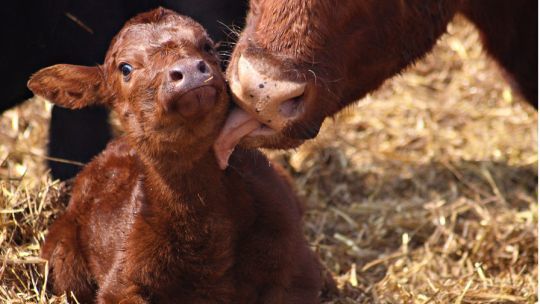During calving season it is a good idea to monitor cows and heifers regularly for signs of labour, calving issues and sick calves. Cattle go through 3 stages of labour – the first is generally isolation from the herd and the beginnings of restlessness. Stage 2 begins with the breaking of the water bag, and finished with a calf being born. Stage 3 is the passing of placental and foetal membranes.
Stage 2 labour should last no more than 2 hours, however leaving it this long before assisting can lead to death of the calf. The most common causes of dystocia (issues in labour) are mal-positioning, maternal-foetal size difference (common in heifers joined with large or older bulls), failure for the cervix to open properly and abnormalities in the calf (extra limbs, joint rigidity etc.)
Having your breeding herd in paddocks close to the crush may help shorten the time between identifying calving issues, and pulling the calf out. While it is common to not see a breeding herd every day in extensive breeding programs, it is important to identify when intervention is needed. Common signs are straining, isolation from the herd, calf legs or a head protruding from the vulva, dried discharge on the back of the udder and loss of condition. Often in these situations it is too late for the calf, but veterinary intervention is needed to save the cow.
If you are able to pull a live calf, they are often quite subdued after a long labour as they can become oxygen deprived when stuck in the birth canal. It is important not to hang them upside down on a fence. This is an old method which has been disproven and can be harmful as stomach contents can be regurgitated and aspirated. It does not aid in clearing the respiratory tract. Instead using a towel or your hand, clear mucous form the mouth and nose and using a twig or your finger tickle their nostril to induce coughing. Rubbing their chest can also help.
If you have any concerns about your herd give our helpful team a call on 07 4982 2552 or visit our common conditions page on our website for more information.




